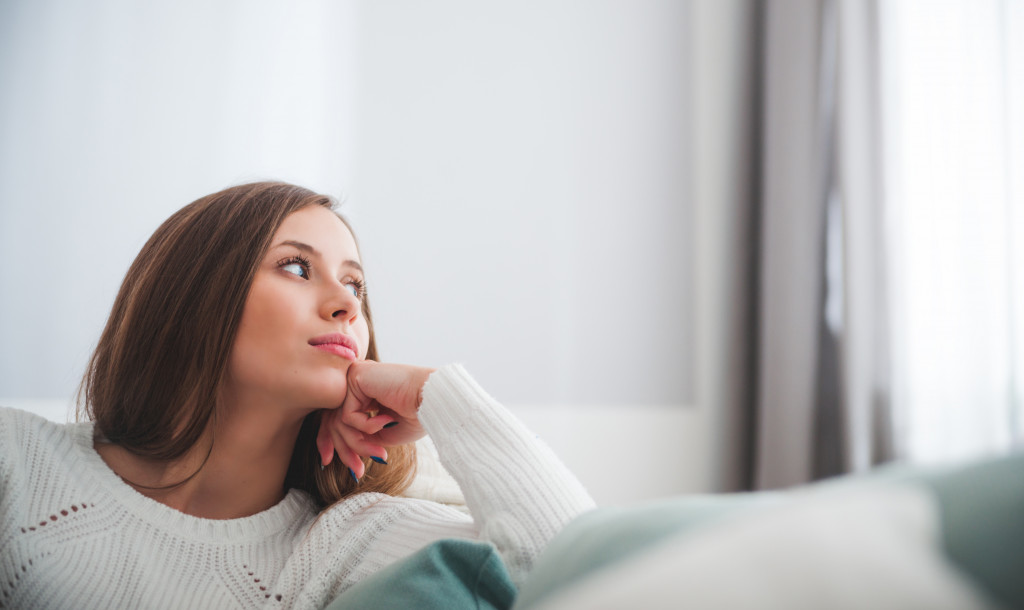As a new mom, you may feel overwhelmed adjusting to life with your little one. You may also be surprised at the changes your body has gone through during pregnancy and birth. You may notice physical changes such as stretch marks, hair loss, extra weight, and even some soreness. It’s important to remember that your postpartum body is just part of the process of becoming a parent. Understanding how it may have changed and how best to care for yourself can help you adjust and make the most out of this special time.
It’s normal to feel like your postpartum body needs some TLC! Here’s a look at the effects of postpartum on a woman’s body and what you can do to care for yourself during this special time.
Changes in Your Hormones
One of the most significant changes after giving birth is hormone levels. During pregnancy, hormones such as estrogen, progesterone, and cortisol increase significantly. After birth, these hormones decrease rapidly, resulting in feelings of fatigue and depression for many women. It’s important to recognize these feelings as normal rather than trying to push through them or ignore them completely. Make sure you get plenty of rest and ask for help if needed!
Changes in Your Hair
You may wake up one day after pregnancy and think, “Oh no, what happened to my hair?!” Many women experience temporary hair loss after giving birth. This is due to an increase in the hormone testosterone during pregnancy, which causes hair follicles to rest longer. The good news is that this typically lasts only 3-6 months before your normal hair cycle resumes.
In the meantime, try using a mild shampoo designed for fine hair. Look for ingredients such as aloe and argan oil to help keep your hair looking healthy. You can also add some essential oils, such as lavender or rosemary, and put them to a carrier oil, like jojoba, for an added boost of hydration. Also, don’t forget to use conditioner. Conditioners for hair loss help to strengthen and nourish your hair, making it look healthier. It contains vitamins and minerals that promote hair growth and prevent breakage. When used regularly, it can help to minimize hair loss and encourage new growth.

Changes in Your Skin
Your skin may also be affected by pregnancy hormones. You may notice stretch marks, sagging in certain areas, or even discoloration. Stretch marks are very common and usually appear on the abdomen, breasts, buttocks, thighs, and hips. These can be treated with topical creams and medications, but they are difficult to remove completely.
You can help keep your skin looking healthy by using a gentle body lotion or oil after bathing. Look for products that contain natural ingredients, such as cocoa butter and shea butter, which have been found to provide some relief from stretch marks. You will also want to keep your skin hydrated by drinking plenty of water and avoiding hot showers. Finally, ensure you get enough vitamins and minerals through diet or supplements to help rebuild collagen and elastin in the skin.
Physical Changes
It’s perfectly normal for your body to take some time to return to its pre-pregnancy shape and size. It is also normal for women to experience pain or discomfort while their bodies are healing from childbirth. This includes soreness in the muscles around the abdomen, back pain from carrying a heavy baby all day, or numbness in the chest area due to breastfeeding.
To help alleviate these aches and pains, it’s important to engage in light exercises, such as walking or stretching regularly. Additionally, ensure you eat healthy foods full of vitamins and minerals to help build strength throughout your body and provide energy for long days with your baby. Healthy food also increases the recovery rate after childbirth due to the vitamins, minerals, and antioxidants that can help your body heal.
Emotional Well-being
Another common effect of postpartum is emotional well-being—or lack thereof. Many new mamas feel overwhelmed by all the changes they are experiencing both physically and emotionally after giving birth. When dealing with these difficult emotions, it can be helpful to give yourself space—both mentally and physically—to process everything that has happened over the past few months. Consider talking things through with family members or friends who have been through similar experiences so you don’t feel alone in this journey.
If you need to talk to a professional, don’t hesitate to contact your doctor or a mental health specialist. Postpartum depression is serious and should not be ignored. Getting the help you need can make all the difference in adjusting to motherhood.
Remember, this is an incredibly special moment that will never pass again! Take time for yourself and enjoy bonding with your new baby. You may not feel at your best, but that’s okay. Your postpartum body reminds you of the wonderful thing you have just accomplished! You can make the most out of this important time in life with understanding and care.
